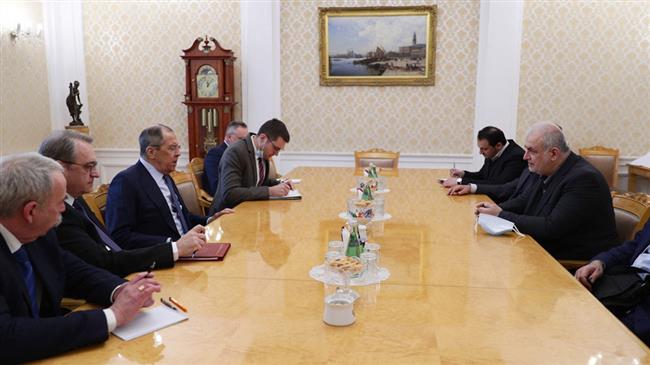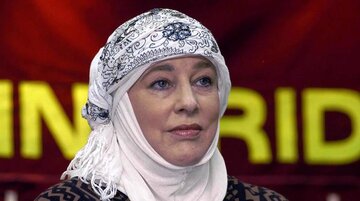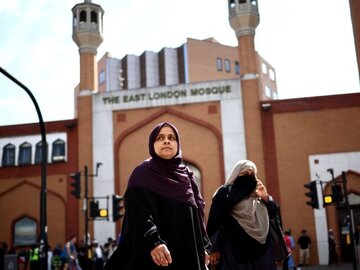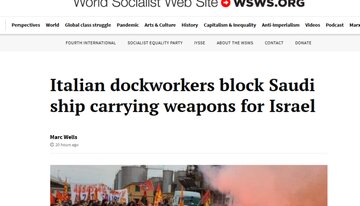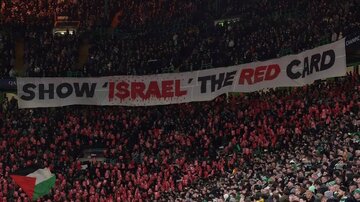AhlulBayt News Agency: The Russian government and Lebanon's Hezbollah resistance movement are reportedly considering the possibility of opening a representative office for the Lebanese popular organization in the capital, Moscow, following high-level meetings between the two sides last month.
Russian Foreign Minister Sergei Lavrov received on March 15 a delegation of senior Hezbollah figures led by Mohammad Raad, the head of the Loyalty to the Resistance Bloc — the political wing of Hezbollah — and media reports indicated that the two sides had held “open and friendly” talks.
The meeting, held at Russia’s request, was described by analysts as different from Moscow's previous ones with Hezbollah and it showed Russia’s inclination to see the Lebanese resistance movement as an “independent” power.
The visit by the four-member Hezbollah delegation to Russia took place at a time when Lebanon is mired in its worst economic crisis in decades as well as a political stalemate over the formation of a new government.
“The two sides stressed the need to strengthen means of communication between them and to adopt direct channels of communication between the party and Moscow, while studying the possibility of establishing a representative office for the party in the Russian capital,” Lebanon's al-Akhbar newspaper said in a report on Tuesday.
The Lebanese paper also said the two sides had discussed the situation in Yemen, Iraq, Syria, and Palestine.
So according to Lebanese Al-Akbar, #Russia is studying the possibility of opening a representative office for #Hezbollah in Moscow. Russia informed Hezb in its visit to Moscow weeks ago in response to an official Russian invitation that they consider the Resistance party
— Sara_Haj (@Sara_Haj) April 6, 2021
Pointing to the Syrian crisis, the al-Akhbar newspaper said the Russians stressed that the presence of Hezbollah in the war-inflicted Arab country was “necessary,” and added that Moscow counted on future cooperation with the resistance movement.
“Russian officials were keen to deliver a clear message to the Hezbollah leadership: Your presence in Syria is necessary, in politics, as in the military,” the paper said. “We count on cooperating with you in the future in both fields.”
presence in #Syria is necessary in politics as in military and they count on cooperating with them in both fields.
It's worthnoting that the Russians, who look at Hezbollah as a regional power, discussed with Hezb the issues of #iraqi & #Yemen in addition to #Syria during the
— Sara_Haj (@Sara_Haj) April 6, 2021
Hezbollah was established following the 1982 Israeli invasion and occupation of southern Lebanon. Since then, the popular resistance movement has grown into a powerful military force.
During the 2000 and 2006 Israeli wars on Lebanon, battleground contribution by Hezbollah proved an indispensable asset, forcing the Israeli military into a retreat and shattering the myth of the occupying entity’s invincibility.
Moreover, Hezbollah has played a critical role in the Syrian military’s counter-terrorism operations over the past years with the aim of preventing the spillover of the Syria crisis into Lebanon.
The US has labeled the entire Hezbollah a terrorist organization and levied several rounds of sanctions on the Lebanese resistance movement as well as its top officials.
Unlike the Western countries, Russia does not consider Hezbollah a terrorist organization.
‘Division widening between Aoun and Hariri’
Meanwhile, Lebanon is still waiting for a new government to be formed months after caretaker Prime Minister Hassan Diab's cabinet resigned in the wake of a massive explosion at Beirut port on August 4 last year, which ravaged the heart of residential areas and the city’s vibrant commercial district.
More than 200 people were killed and over 6,000 others injured in the giant blast. Dozens of people are still unaccounted for.
Prime minister-designate Saad al-Hariri and President Michel Aoun have been at loggerheads for months over the makeup of a new cabinet.
Diab has threatened that he would stop performing his duties as the caretaker prime minister in a bid to pressure political forces to form a new government as he faced criticism for both being passive and overstepping his caretaker role.
In an exclusive interview with Press TV on Tuesday, Lebanese journalist and researcher Kassem Kassir explained the reasons behind the delay in the formation of a new government in Lebanon and highlighted the role of some foreign factors in that issue.
Referring to the rift between the political parties across the country, Kassir said there is deepening division between Aoun and Hariri over the formation of the government as well as the number of ministers and those who elect them.
“The new strategy for forming a government is to elect 24 ministers equally among all parties,” he said. “Hariri is trying to gain regional and international support for the government, and therefore, we are witnessing a delay in forming a government.”
Asked about Hariri's record and his failure to run the government and whether he would succeed despite forming a government, Kassir said, "If he does not gain international and regional support, he will fail."
In response to a question about the role of Hezbollah and its efforts to form a government, the Lebanese political analyst said, “Hezbollah has supported the proposed solutions and is in contact with Lebanese groups to find a way out of the crisis.”
He also underlined that Saudi Arabia opposes any role for Hezbollah in the new government and is causing hindrance for positions adopted by Aoun and Hariri, despite claims recently made by Riyadh that it has no interference in the formation of the Lebanese government.
Lebanon is locked in its worst economic crisis since the 1975-1990 civil war, with no end in sight.
#Hezbollah is starting a chain of supermarkets named "Al-Sajjad" which provides products with minimal costs as to help the Lebanese people overcome the severe economical crisis accompanied by currency collapse, and insane increase in prices #Lebanon is witnessing. pic.twitter.com/UuRVFPUDCC
— Sara_Haj (@Sara_Haj) April 6, 2021
The value of the Lebanese pound has crashed steeply in recent weeks, losing one-third of its value. The plunge has driven up the price of crucial imports like food and fuel, and triggered small but angry protests.
More than half of Lebanon's population is reportedly poverty-stricken, and much of the six million population depends on subsidies to get by.
What's more, Lebanon is gripped by a surge in coronavirus infections and pressure on the health sector.
/129

